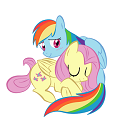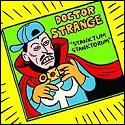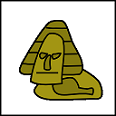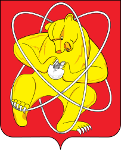|
Any rough timeline for ancient China? It's a bit hard to sort out when various things happened relative to western history, particularly with nationalist noise in the way.Grand Fromage posted:Well, this was a new attitude. In an early age the Germans would've been integrated into the empire like the thousands of other tribes the Romans had conquered, and everything would've been fine. But the Romans turned xenophobic, and by the era of the barbarian invasions they were totally unwilling to try to bring the Germans into the fold. So instead the Germans forced the issue with axes and took over. Seems that it's both a cause and symptom of the ailing Empire I mean. I remember some psychological/sociological(can't remember, or tell the difference between them as a layman) article that found that people become more conservative and xenophobic when in times of stress. Meaning the old cranky conservative xenophobes got heard and believed by more people in turn. And of course that attitude only made things worse on an empire built on absorbing new ideas and people.
|
|
|
|

|
| # ? May 10, 2024 02:28 |
|
veekie posted:Any rough timeline for ancient China? It's a bit hard to sort out when various things happened relative to western history, particularly with nationalist noise in the way. Chinese history is usual told in terms of "dynasties" each of which are by rights their own state which share more or less features with the previous state depending. The idea of China as a However, since literally all historical overviews tell things in terms of dynasties, I'm going to do it too. Just be aware that dynasty is such a broad word in Chinese history that it means little more than the name of the state that was supposedly dominant for most of the time period. 1700-1000 BC - The Shang Dynasty Although our earliest written records begin around 1200 BC, our  history record-holder is the Shang dynasty, who wrote divinations on turtle bones. They lived in the Yellow River valley in an area roughly described by modern Henan and Shaanxi provinces. The Shang were a warrior-aristocrat culture who rode around on chariots being mean to people when they weren't poking turtle bones with hot sticks. They began the Chinese tradition of elaborate tomb construction that continues all the way up through to 19th century. We know a lot about how Shang chariots work because they helpfully buried them for us. Along with ritually sacrificed horses. And ritually sacrificed charioteers. history record-holder is the Shang dynasty, who wrote divinations on turtle bones. They lived in the Yellow River valley in an area roughly described by modern Henan and Shaanxi provinces. The Shang were a warrior-aristocrat culture who rode around on chariots being mean to people when they weren't poking turtle bones with hot sticks. They began the Chinese tradition of elaborate tomb construction that continues all the way up through to 19th century. We know a lot about how Shang chariots work because they helpfully buried them for us. Along with ritually sacrificed horses. And ritually sacrificed charioteers. Note: Those turtle bones were a super-coup for Chinese historians because they were contemporary records of the names and reign-dates of a whole bunch of Shang dynasty kings. When they compared the Shang's own records with Sima Qian's Records of the Grand Historian (written 1200 years later!) they matched almost exactly. Everyone who had dismissed Sima Qian as unreliable had to eat a lot of crow that day. This is a big reason I'm still waiting for more evidence on the Xia dynasty, Sima Qian may end up having found a nugget of truth amid the obvious legends. 1000-250 BC - The Zhou Dynasty The Zhou lead a rebellion against the Shang for being even bigger dicks than usual, and won. The Zhou (independently) invented being nice to people, and used this newfound power to form a coalition of tribes and petty states that were fed up with the Shang and overthrew them. They also invented the literati-aristocrat ruling class, which remained a core part of Chinese culture. I'm sure life was more sedate for the peasants with the high and mighty sitting around in their pagodas drinking tea and writing poetry rather than riding around shanking people with halberds. The coalition-building strength of the Zhou is why they have such a long technical reign; everyone wanted to be associated with them long after their power was gone. That's why the Zhou technically continues until 250 even though another period starts around 700... 700-500 BC - The Spring and Autumn Period Around 700 BC, people from the north and west move in and toss the Zhou out of their capital in Xi'an. (This is going to become a theme in Chinese history.) The Zhou court is re-established at Luoyang, near the old Shang capital, but the Zhou state is all but destroyed. China degenerates into hundreds of petty kingdoms. Remember China at this point is just the North China Plain, so they were really were very petty kingdoms. On the other hand, this period sees the first great flowering of Chinese philosophy. Scholars and strategists would kick around from kingdom to kingdom seeking employment from the warring kings. This is how Sun Tzu and Confucius got their jobs. Sometimes you would have kings go look for wise men; with so many kings there was probably not enough wisdom to go around. Most importantly Confucianism Daoism and Legalism (the lost Chinese -ism) originate here. Confucius is actually the one who named this period; he wrote a very long book about how much better people were during the Zhou and how modern China was suffering moral collapse. Common themes. One more important thing to note is that the Chinese cultural sphere starts to grow pretty rapidly even during these internally divided times, or even because of them, as Chinese people flee south towards the Yangtze and east to more sparsely populated areas. By 500 BC all of the Yellow River basin and the lower Yangtze valley is part of the Chinese world. Barbarians from the northwest (in the old capital region  ) and southeast in the Yangtze Delta are starting to adopt Chinese culture as well. ) and southeast in the Yangtze Delta are starting to adopt Chinese culture as well.500-221 BC - The Warring States Period Eventually one king after another gobbled up his neighbor until there were 7 states of reasonable size left, and this somewhat arbitrary distinction kicks off the Warring States period. Before we get into the big wars, I want to mention that this period was a continuation of the Spring and Autumn intellectual flowering. Especially in political science, which the Chinese formalized long before the West. This period was when you saw Confucianism and Legalism (and more nebulously Daoism) studied by people with real power and implemented in statecraft. Confucianism which you probably know is all about moral correctness and the idea that harmony arises from behavior proper to one's station. Legalism is about implementing the proper laws (as opposed to inculcating the proper morals) and coming down like the fist of an angry loving god when anybody so much as shuffles a toe over their line. Think of it as Ancient Chinese Judge Dredd and you honestly won't be far off. The idea is to make punishment so reliable, so swift and so shocking that it appears otherworldly and almost divine, so that the law becomes The Law and the people obey without need for direction or, ironically, punishment. The punishment for a lot of crimes was immediate execution. People visiting Legalist regimes often remarked on how orderly they were. Confucianism and Legalism became the dominant political philosophies and duked it out in a literal way. I mentioned that Legalism is the lost Chinese -ism so you know who won. So anyway: the wars. As you would expect from the name, these 7 states spend over a hundred years kicking the absolute poo poo out of each other, with the occasional barbarian thrown in for good measure. The ones to remember are: - Qin, the westernmost barbarian-ish kingdom which may be the same people that defeated the Zhou. Bootstrapped itself from tiny backwater to major player. Legalist state; incredibly strict laws. I actually live in the Qin breadbasket region right now.They win the wars. - Zhao, northern state and Qin's arch-rival. Chinese people consciously imitating northern barbarians, to great success. - Chu, southernmost and largest state. Also semi-barbarian. Recurrent problems with corruption. Also Qin's arch-rival.  You have to picture China divided into these three large kindoms in the north, west, and south, a couple more good-sized states on the east coast, and a sort of thunderdome area of small kingdoms in the center. That thunderdome was a state that had been broken up in a peace agreement, and became the fulcrum of balance of power struggles for 150 years. Fortunes waxed and waned for a long time so you can't say one state was definitely the best. Ultimately, Qin broke the balance of power by annihilating (i.e. killing) the entire army of Zhao in a strategic aand that leads into the Imperial period, which I'm not going to write today. Anyway, I hope that's a light overview of pre-Imperial China. Arglebargle III fucked around with this message at 12:27 on Oct 11, 2013 |
|
|
|
Arglebargle III posted:Chinese history - part 1 Thank you for posting this. So, these barbarian people you mention invading China, who were they? What caused them to invade? What is known about them? my dad fucked around with this message at 15:33 on Oct 11, 2013 |
|
|
|
my dad posted:Thanks you for posting this. So, these barbarian people you mention invading China, who were they? What caused them to invade? What is known about them? Short version, I'm sure someone else can give a more in-depth answer There were several different "barbarian" groups who invaded China periodically. They were typically nomadic steppe horsemen from the north. I believe there were some groups who came from the west as well. Some examples would be Xiongnu, Turkic peoples, and later the Mongols and the Jurchen, who founded the Yuan and Qing dynasties, respectively. Incursions by steppe nomads was a pretty regular thing, and was actually the reason the Great Wall was built. Generally one steppe tribe would defeat the one currently running things, then invade China, and it was essentially a never ending cycle. The invasions were usually just for plunder. Sedentary people have nice things that nomads want/can't produce themselves, so they simply take it and leave. Occasionally you have groups like the Mongols who are in it for conquest. We don't know a whole lot about most of these groups as they didn't really keep records of their own (aside from the Mongols and Jurchen, obviously). There are a lot of theories about them though. Some scholars believe when the Xiongnu were pushed out, they ended up migrating westward and became their descendants became known as the Huns. The timeline kind of matches up, and there are some similarities between the cultures, but there's not enough evidence to prove it.
|
|
|
|
canuckanese posted:We don't know a whole lot about most of these groups as they didn't really keep records of their own (aside from the Mongols and Jurchen, obviously). There are a lot of theories about them though. Some scholars believe when the Xiongnu were pushed out, they ended up migrating westward and became their descendants became known as the Huns. The timeline kind of matches up, and there are some similarities between the cultures, but there's not enough evidence to prove it. The similarty in cultures can also come from the fact all of the steppe peoples were more like each other then any of the sedentary peoples. Obviously there would have been a big difference between a Scythian and a Xiongnu, but they would have been way more like each other then either the Greeks or Chinese. I remember we talked about this earlier, because I was wondering if there were any hard links like shared gods or something, but it seems the answer is simply that we do not know.
|
|
|
|
What about the sage-emperors? Are they completely mythological, or are they tall tales about the first Shang rulers?
|
|
|
|
What's the term for things where it's like, the person probably existed, the person probably did some of the stuff they had a reputation for, but we know they definitely didn't do all of it?
|
|
|
|
Install Windows posted:What's the term for things where it's like, the person probably existed, the person probably did some of the stuff they had a reputation for, but we know they definitely do all of it? Jesus?
|
|
|
|
MothraAttack posted:Going back to all the talk about early dukes, what's a good survey book covering the very late Western Roman Empire/early Frankish, etc. societies/early medieval transition? I.e., a solid "Dark Ages" history with a focus on social and political developments. Inheritance of Rome by Christopher Wickham. The development of political and social systems, court practices, and the like in the (very late) Western Empire, the various post-Roman barbarians (Visigoths, Lombards, Franks, England/Wales/Ireland, etc.), and all of that up through 1000 AD (with a little bit of Byzantine and Abassid stuff thrown in) is basically that book's entire shtick so I would assume that's probably the most comprehensive write-up you're going to find on the subject. I'm still reading through it now though because I get distracted easily; no fault of the book's as I do find it all really interesting to learn about.
|
|
|
|
Could someone recommend me a good beginning book on ancient Chinese history? With how politicized the issue seems to be and my complete lack of knowledge on the subject, I don't trust myself to pick out the nonbiased sources.
|
|
|
|
|
Azathoth posted:Could someone recommend me a good beginning book on ancient Chinese history? With how politicized the issue seems to be and my complete lack of knowledge on the subject, I don't trust myself to pick out the nonbiased sources. I heard good things about the Open Empire, and I've found it's a pretty good intro. Uses a few case studies and likes to side track on to peasants and merchants and stuff. Amazon.
|
|
|
|
Arglebargle III posted:700-500 BC - The Spring and Autumn Period Strange that a period with so much conflict had a cultural and intellectual boom. Wouldn't common wisdom indicate that ongoing conflicts cause both to slow? Granted, common wisdom is very often wrong.
|
|
|
|
veekie posted:Strange that a period with so much conflict had a cultural and intellectual boom. Wouldn't common wisdom indicate that ongoing conflicts cause both to slow? One of the biggest themes you see when you study history is that conflict is one of the biggest drivers of change and innovation.
|
|
|
|
Since everyone else is doing it, does anyone have a recommendation for a book on Roman mythology? In school it was always implied they took the Greek gods and ran with it, but the more I read about it the less that seems to be the case. I'd love to learn more about the specifically Roman beliefs and how they integrated other religions into those beliefs.
|
|
|
|
Thwomp posted:One of the biggest themes you see when you study history is that conflict is one of the biggest drivers of change and innovation. Yeah but based on what Western history shows, conflict drives practical, applicable innovations. Improvements in production to feed the war, innovations in logistics and military technologies, but philosophers need to be fed, and coming up with Confucianism, Daoism and Legalism doesn't quite seem like the kind of thing a military-led scenario would fuel.
|
|
|
|
Thwomp posted:One of the biggest themes you see when you study history is that conflict is one of the biggest drivers of change and innovation. Yeah, really it only takes a bit of armchair logic to guess that times of violence and suffering are when people are most open to new ways of thinking about life and the world.
|
|
|
|
quote:Jesus? Speaking of Jesus, has anyone looked at the "covert Messiah" guy? He claims Jesus was invented by Romans as part of a trick to something, conspiracy, something. It has the strong smell of pure nonsense, but I found it amusing, and it's getting a fair amount of attention.
|
|
|
|
Install Windows posted:What's the term for things where it's like, the person probably existed, the person probably did some of the stuff they had a reputation for, but we know they definitely didn't do all of it? Composite Figure?
|
|
|
|
Install Windows posted:What's the term for things where it's like, the person probably existed, the person probably did some of the stuff they had a reputation for, but we know they definitely didn't do all of it? semi-mythological?
|
|
|
|
It was discussed earlier in the thread that Jesus was most likely the combination of a number of historical and mythological figures, which the Romans adopted and helped to propagate, due to the cult's popularity amongst the peasants and also it's convenient virtues. Claiming they made it up whole cloth is a bit far fetched though.
|
|
|
|
veekie posted:Yeah but based on what Western history shows, conflict drives practical, applicable innovations. Improvements in production to feed the war, innovations in logistics and military technologies, but philosophers need to be fed, and coming up with Confucianism, Daoism and Legalism doesn't quite seem like the kind of thing a military-led scenario would fuel. A lot of the new stuff is 'well, the old order is hosed, now what do we do with this?' Confucianism, Daoism (or at least, the Daodeching), and Legalism are all about how to be an effective ruler and why people should be obey. Legalism (and it's main proponent, the Qin) was frighteningly bureaucratic and pragmatic and so effective at mobilizing grain and soldiers, which led to the Qin standing tall over a great number of rivals. Confucius played a lot off the (for obvious reasons) rampant nostalgia for better times but was also appealing to rulers because he advocated loyalty and fidelity and peasants doing what they were told. One of the more fun philosophers of the time was Mozi, who was very into brotherly love and rabidly anti-war... and also one of the premier military engineers of the day. He and his followers would offer their services to defending sides in wars as a sort of deterrence to aggression. There's a story that he once had a series of wargames with a general contemplating an attack on a neighbor, and won each time. Then he told the general that he'd had his followers train the defending side in his style, and so the general was persuaded never to attack in the first place. Probably apocryphal, but the Qin saw the Mohists as enough of a threat that they wiped them out, hence why they're not really around anymore.
|
|
|
jmzero posted:Speaking of Jesus, has anyone looked at the "covert Messiah" guy? He claims Jesus was invented by Romans as part of a trick to something, conspiracy, something. It has the strong smell of pure nonsense, but I found it amusing, and it's getting a fair amount of attention. A good summary of the case against him is presented here: http://tomverenna.wordpress.com/2012/09/25/no-joe-atwill-rome-did-not-invent-jesus/
|
|
|
|
|
Christian history in the Roman Empire is tremendously complex and takes place of a long long time. To say something like "The Romans made up Jesus" is a little simplistic.
|
|
|
|
veekie posted:Yeah but based on what Western history shows, conflict drives practical, applicable innovations. Improvements in production to feed the war, innovations in logistics and military technologies, but philosophers need to be fed, and coming up with Confucianism, Daoism and Legalism doesn't quite seem like the kind of thing a military-led scenario would fuel. I don't think Western history shows that at all. Conflict brings out all sorts of responses, look at all the art and poetry and pacifism that arose after WW1 for example, or the Renaissance, which featured among other things half of Italy trying to kill or conquer the other half. Political ideas are very often a practical and applicable innovation because when you're in the midst of chaos people are going to be suggesting all kinds of alternatives.
|
|
|
|
It's probably instructive to remember the Spring and Autumn period lasted hundreds of years, with war and peace breaking out sporadically over time. Don't compare to Word War II, rather compare to the entire 20th century.
|
|
|
|
veekie posted:Yeah but based on what Western history shows, conflict drives practical, applicable innovations. Improvements in production to feed the war, innovations in logistics and military technologies, but philosophers need to be fed, and coming up with Confucianism, Daoism and Legalism doesn't quite seem like the kind of thing a military-led scenario would fuel. The Third Man posted:"You know what the fellow said – in Italy, for thirty years under the Borgias, they had warfare, terror, murder and bloodshed, but they produced Michelangelo, Leonardo da Vinci and the Renaissance. In Switzerland, they had brotherly love, they had five hundred years of democracy and peace – and what did that produce? The cuckoo clock."
|
|
|
|
Squalid posted:It's probably instructive to remember the Spring and Autumn period lasted hundreds of years, with war and peace breaking out sporadically over time. Don't compare to Word War II, rather compare to the entire 20th century. That makes sense then. Lots of small wars with cooling off periods rather than armed camps facing off?
|
|
|
|
euphronius posted:Christian history in the Roman Empire is tremendously complex and takes place of a long long time. To say something like "The Romans made up Jesus" is a little simplistic. Yeah, but like, religion, man.
|
|
|
|
What do you think was the cause of the fall of Troy?
|
|
|
|
Um, the swiss army knife? Hello?
|
|
|
|
Baron Porkface posted:What do you think was the cause of the fall of Troy? Which one?
|
|
|
|
How are Chinese words pronounced? I guess I can figure out some like Zhou and Shang, but how do you say something like Xi'an? What's "Xi?" For that matter, what's "Tzu?" "Qin?"
|
|
|
|
|
Someone more qualified than me can correct me if im wrong but it'd be likd "Xian" = Chan or Zhan, Tzu like Shu or Chu, Qin like Keen or Cheen. Transliteration from Mandarin to English is pretty imperfect no matter what.
|
|
|
|
' signifies a break between syllables right? I think it's there because non-native speakers might not naturally put a break there, so Xi'an would be like like Ch-an?
|
|
|
|
|
veekie posted:Yeah but based on what Western history shows, conflict drives practical, applicable innovations. Improvements in production to feed the war, innovations in logistics and military technologies, but philosophers need to be fed, and coming up with Confucianism, Daoism and Legalism doesn't quite seem like the kind of thing a military-led scenario would fuel. A lot of the intellectual golden age of Greece is the same period as the Persian Wars. It happens. jmzero posted:Speaking of Jesus, has anyone looked at the "covert Messiah" guy? He claims Jesus was invented by Romans as part of a trick to something, conspiracy, something. It has the strong smell of pure nonsense, but I found it amusing, and it's getting a fair amount of attention. Dude's full of horseshit and fishing for publicity for his book. I am not at all convinced Jesus was an actual historical figure but this guy's hypothesis is nonsense. SniperWoreConverse posted:How are Chinese words pronounced? I guess I can figure out some like Zhou and Shang, but how do you say something like Xi'an? What's "Xi?" For that matter, what's "Tzu?" "Qin?" Read the Pinyin article on Wikipedia. Xian is roughly she-ahn. Tzu is... well basically what it looks like, tzoo. The t and z are said together. Qin is chin, which points out their legacy. Qin is where the word China comes from. And of course there are tones that we're leaving out. Proper full Pinyinizing would either have a diacritic or a number, so Qin would be written as Qin2 for second tone, or Qín. I like that because the angle of the thingie shows you the tone, second tone is rising and it points up! Hooray!  So to say it properly it's chin and your voice pitch should rise a bit during the syllable. I'll leave anything further to people who actually speak Chinese. I just know basics.
|
|
|
|
SniperWoreConverse posted:How are Chinese words pronounced? I guess I can figure out some like Zhou and Shang, but how do you say something like Xi'an? What's "Xi?" For that matter, what's "Tzu?" "Qin?" http://en.wikipedia.org/wiki/Pinyin#Rules_given_in_terms_of_English_pronunciation The hard groups (by groups I mean sounds with similar tongue positions) for English speakers are j/x/q and zh/ch/r and z/s. The j/x/q group is a front-of-mouth hiss with the tongue braced on the alveolar ridge but with the tip tucked behind the lower front teeth. You barely open your teeth and the hiss is produced by the sound flowing over the tongue and through the teeth. That's x. Q is almost the same but makes a stronger consonant sound by pressing your tongue harder against the alveolar ridge and then relaxing. J is a voiced q. Zh ch and r are the retroflex sounds, which are called that because your tongue is curled back to the middle of the hard palate. You can produce a decent approximation of ch by saying the English hard ch and then moving your tongue back to the middle of the hard palate and trying again. Zh is like that but voiced, like the English hard J. r is similar to English r but again further back and with your tongue tighter against the hard palate. You can get away with saying a really strong English CH or J to fake these. A lot of Chinese accents delete these in favor of... Z and s, which are front of mouth sounds again. They're like the English equivalents but with your tongue further forward, overlapping the alveolar ridge with the tip floating just behind your front teeth. They're also much more stressed than in English, which is why the older romanization would render pinyin s as ts or sz. SniperWoreConverse posted:' signifies a break between syllables right? I think it's there because non-native speakers might not naturally put a break there, so Xi'an would be like like Ch-an? Xi'an is a hissed "She-an" with the ' representing a glottal stop in Chinese just like it does in English. You don't normally see that in pinyin (just like in English) but xian is a possible one-syllable word, and because when you romanize you leave out spaces between compound words, you need to be clear that it's a two syllable word and not the one-syllable xian. In Chinese of course the two characters instead of one make it a non-issue. Qin is like "chin" but with the ch pronounced just behind the teeth. Tzu is an older romanization called Wade-Giles which isn't bad if you know what you're saying but is much more likely to lead naive English speakers astray. You're not actually supposed to pronounce tzu like it looks. The pinyin of tzu is zi. Sun-Tzu for example is supposed to be pronounced like "soon-tzi" and if you know how to read Wade-Giles you'll get it right, but if you don't you'll produce "sun-zoo".  There is no hard "a" in Chinese. There is no hard "a" in Chinese. Every "a" you see is a long "a", so Wang is pronounced Wahng and fang is fahng and so on. This is probably the biggest pet peeve of Chinese-speakers talking to English-speakers, not least because the most common Chinese family name is rendered a homonym for penis if mispronounced in this way. Every "a" you see is a long "a", so Wang is pronounced Wahng and fang is fahng and so on. This is probably the biggest pet peeve of Chinese-speakers talking to English-speakers, not least because the most common Chinese family name is rendered a homonym for penis if mispronounced in this way.edit: In real life pinyin very rarely includes any tone markers. Deleting the spaces between compound words usually leaves little room for ambiguity. For example: "Zhong guo zheng zai jing li cheng shi hua," is a bit puzzling without tone markers, but "Zhongguo zhengzai jingli chengshihua," is unambiguously "China is now experiencing urbanization." It's only a real problem with place names, where there's no context to inform you what word this is. Arglebargle III fucked around with this message at 03:35 on Oct 12, 2013 |
|
|
|
I thought Tzu was Pinyin. Pinyin is internally consistent but doesn't match what the letters are in English so you have to learn it. And remember you're learning "standard Mandarin" pronunciation (whatever that is) and all the different Chinese languages will be different. So you'll have a Cantonese name rendered in Pinyin but that's not how you'd pronounce it in Cantonese and on and on.
|
|
|
|
Grand Fromage posted:I thought Tzu was Pinyin. Wade-Giles is exactly the same, you have to learn it. The reason it's so hated is because it looks pronounceable and has lead to decades of mangled pronunciations from English speakers.
|
|
|
|
The weird thing is most native Mandarin speakers ive met just tell me to stop trying to pronounce things right. The only one who tried to teach me something close to proper pronunciation was a girlfriend of mine a few years back. This is a big contrast with spanish speakers on the border here in Arizona. Edit: for example, at the ad firm I was at lt last year I hired a international student from Beijing as an intern and tried to refer to her by her actual given name, but pretty up front she told me to just call her by her "western" nickname. Berke Negri fucked around with this message at 03:33 on Oct 12, 2013 |
|
|
|

|
| # ? May 10, 2024 02:28 |
|
If you didn't grow up with the sounds, I would guess native pronunciation is nearly impossible save for linguistically talented people.
|
|
|




































